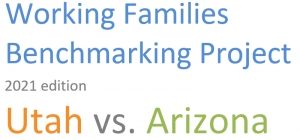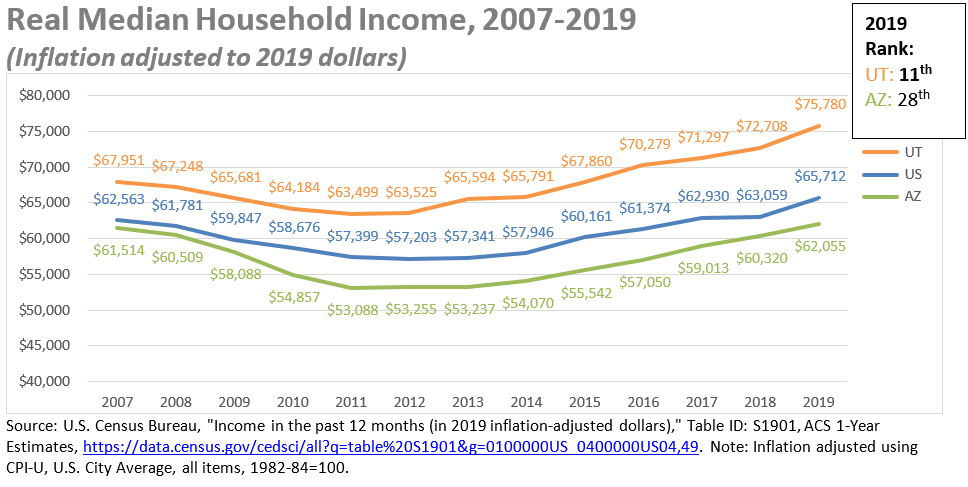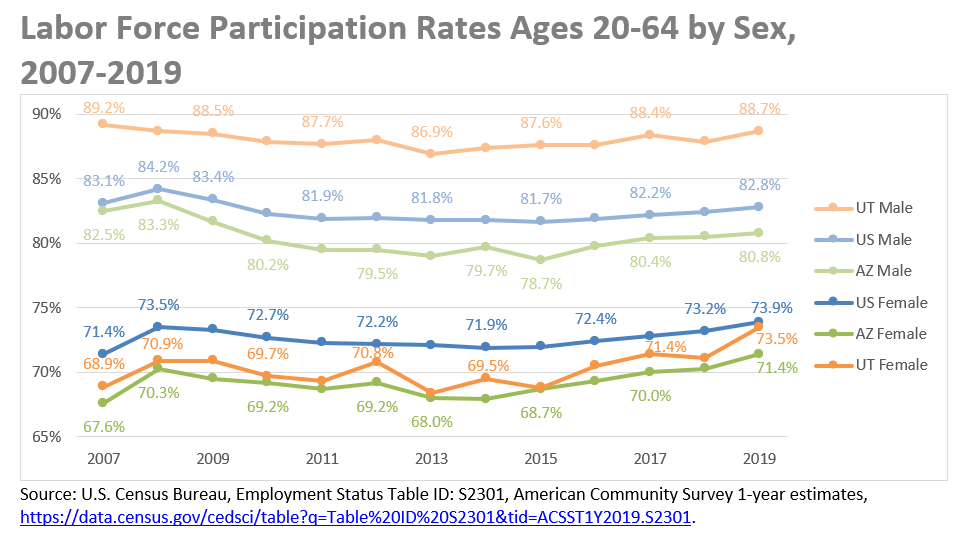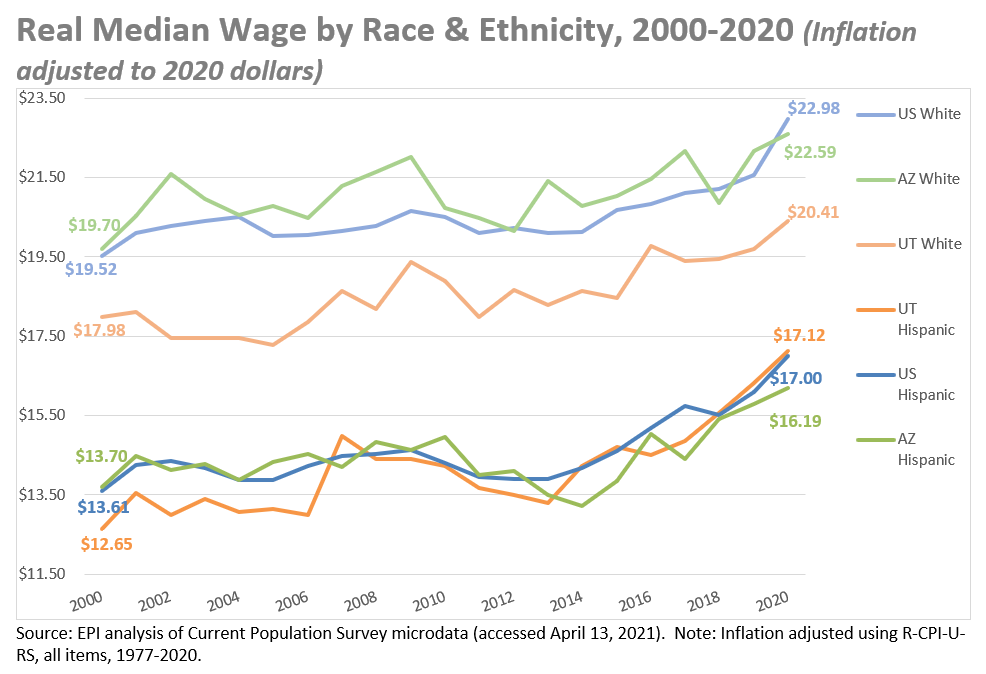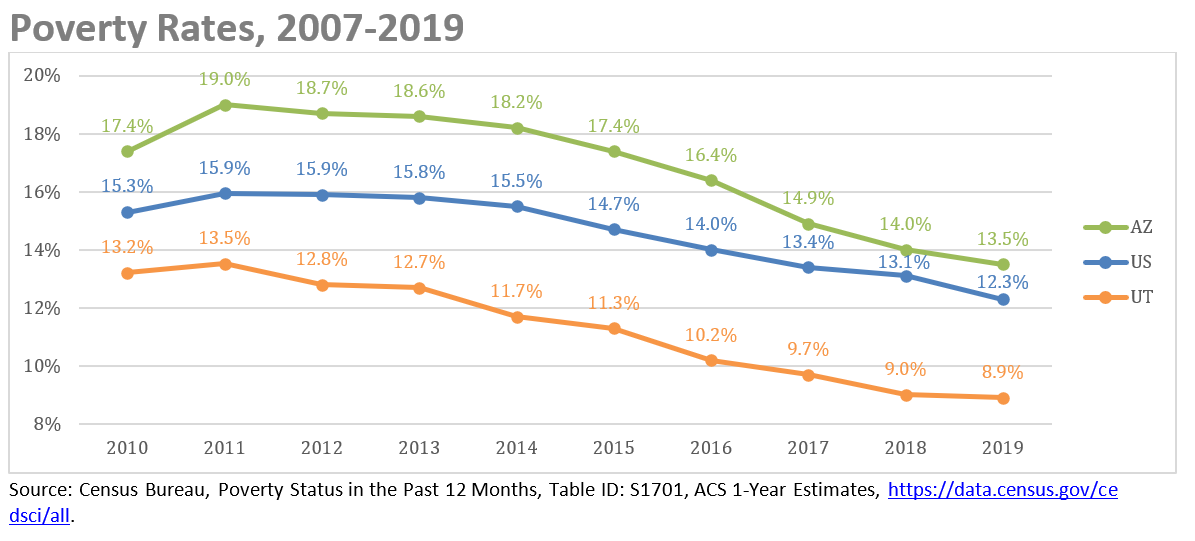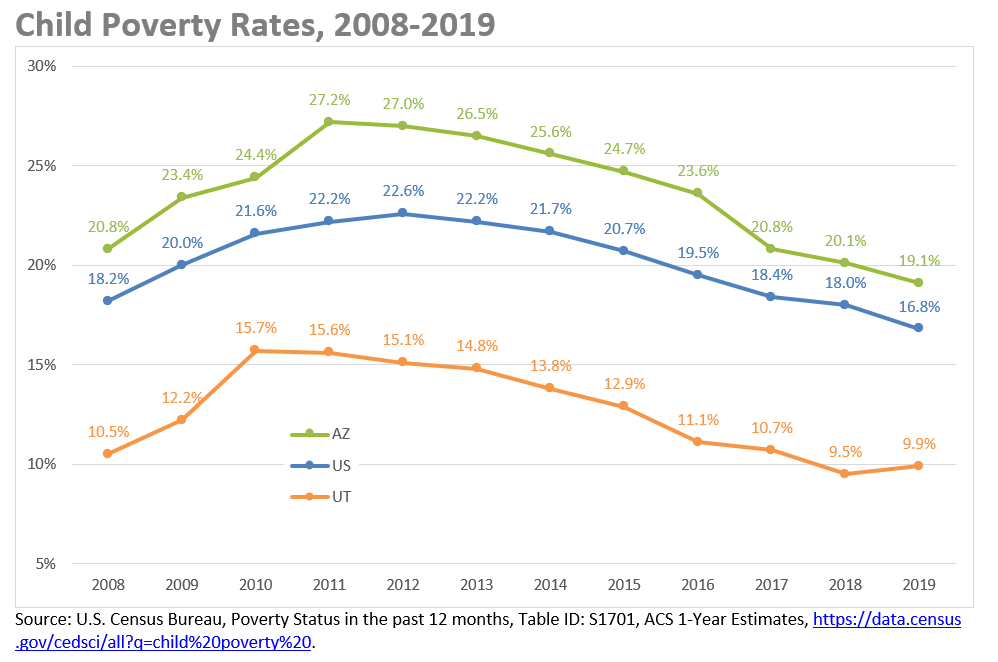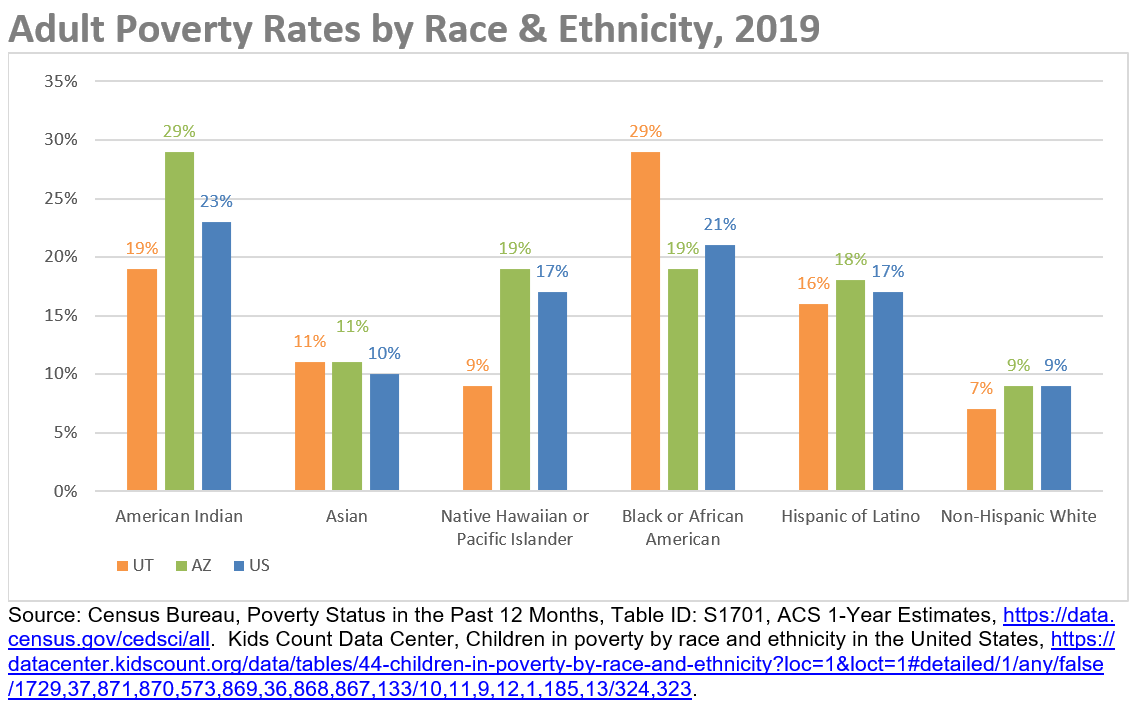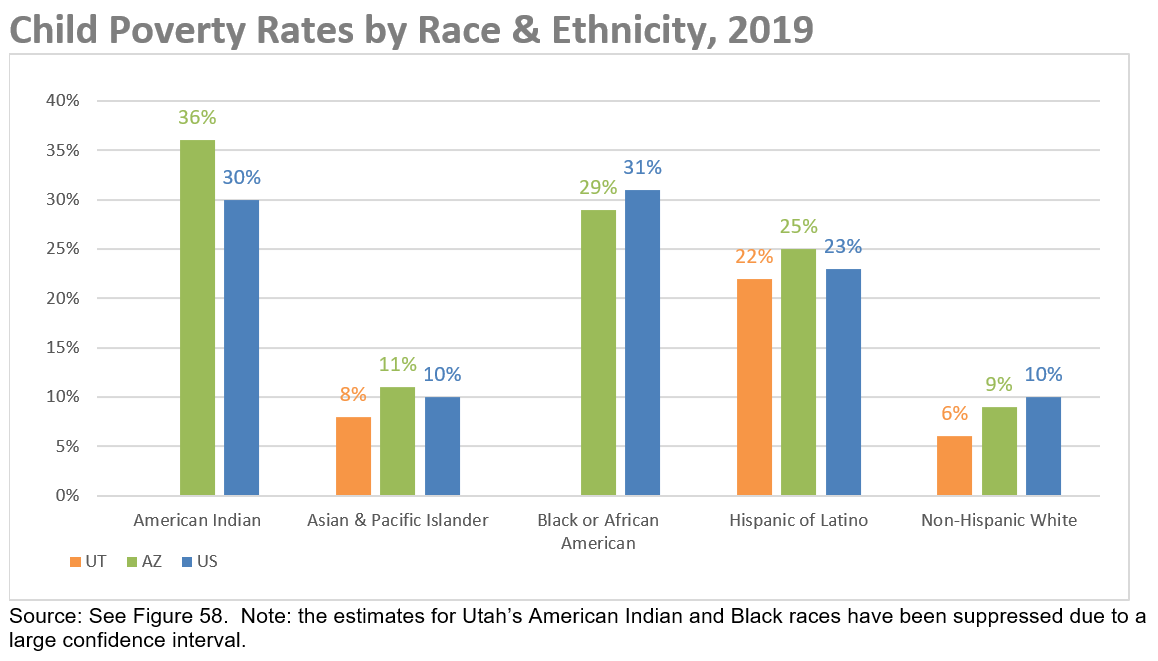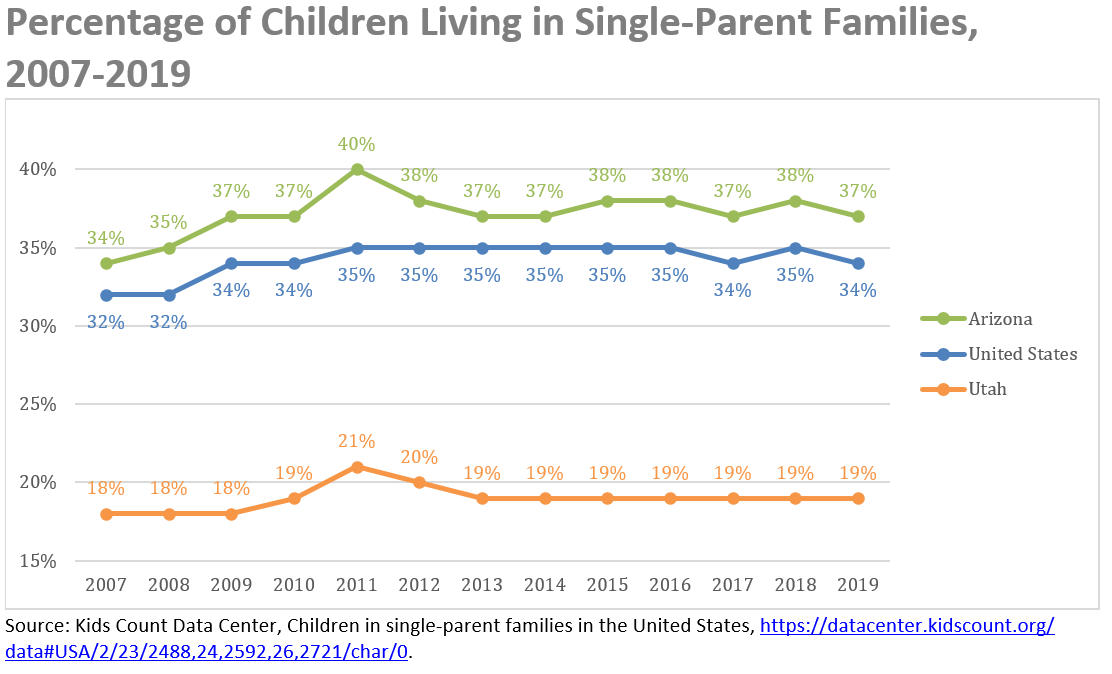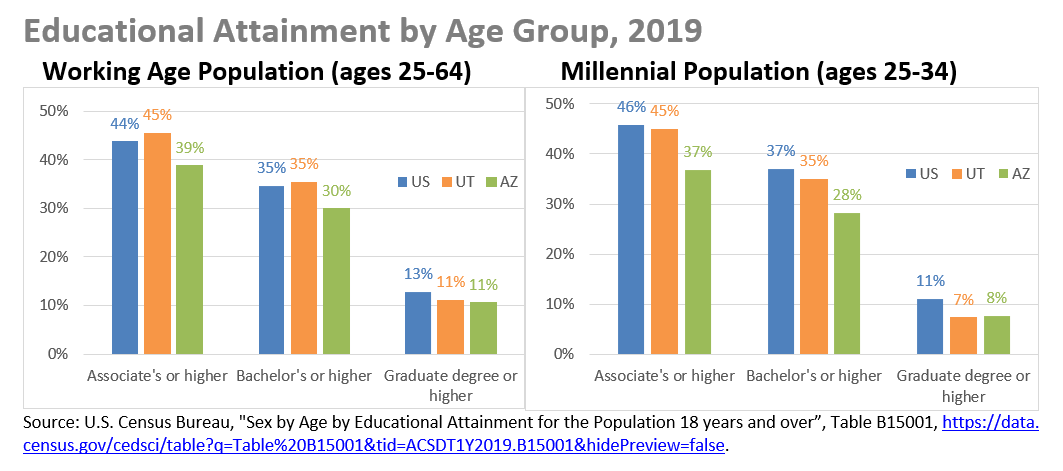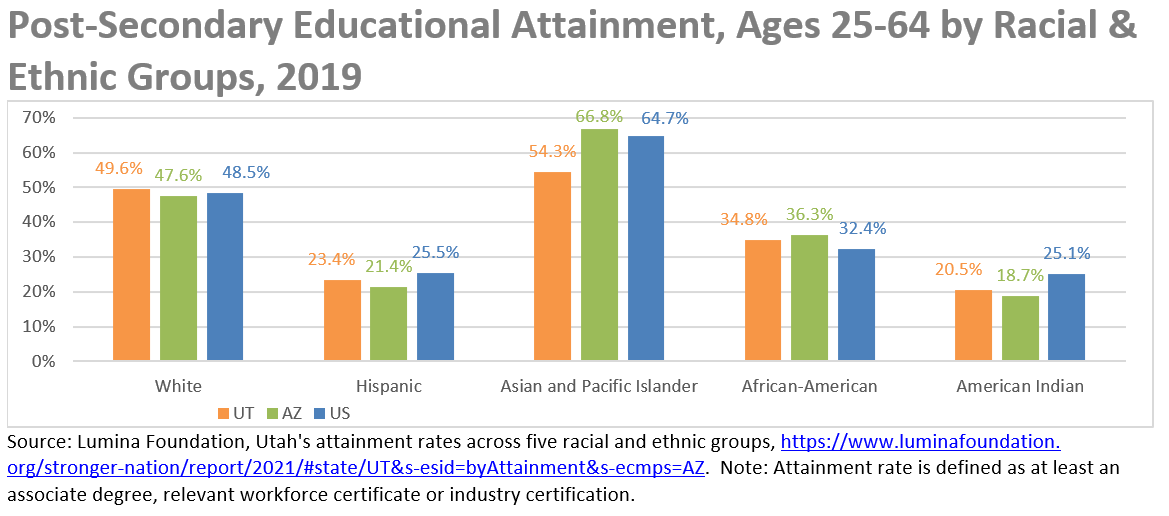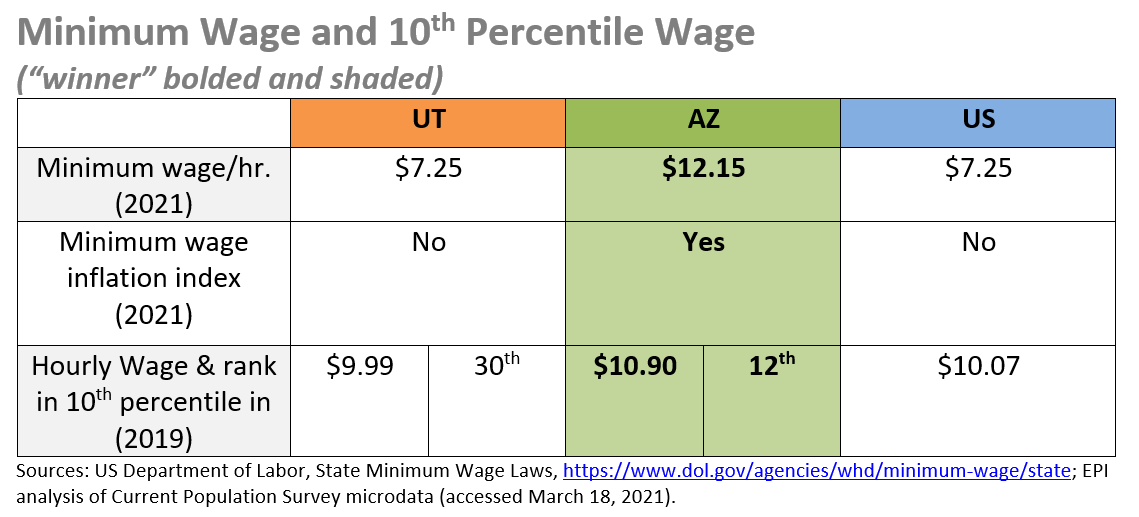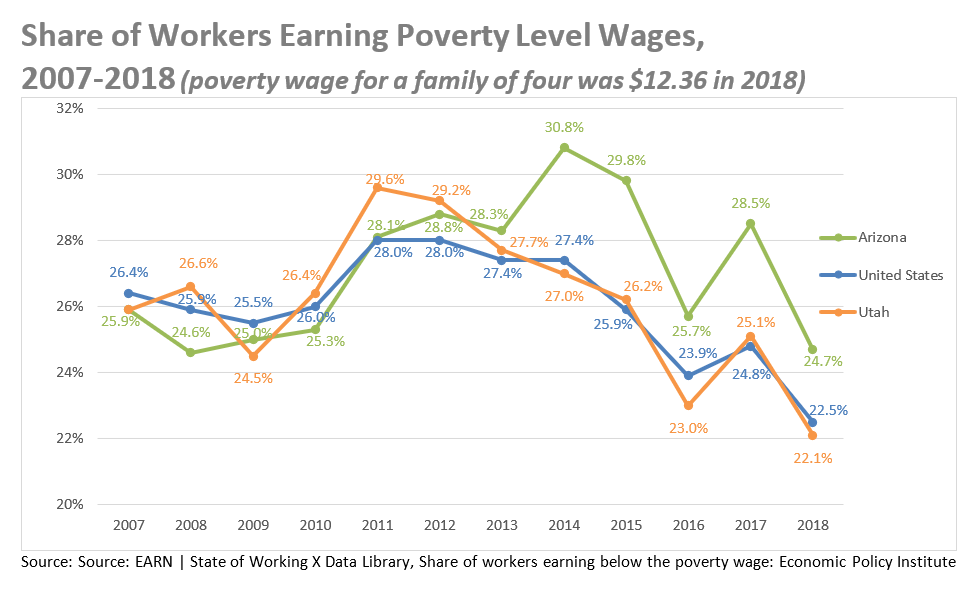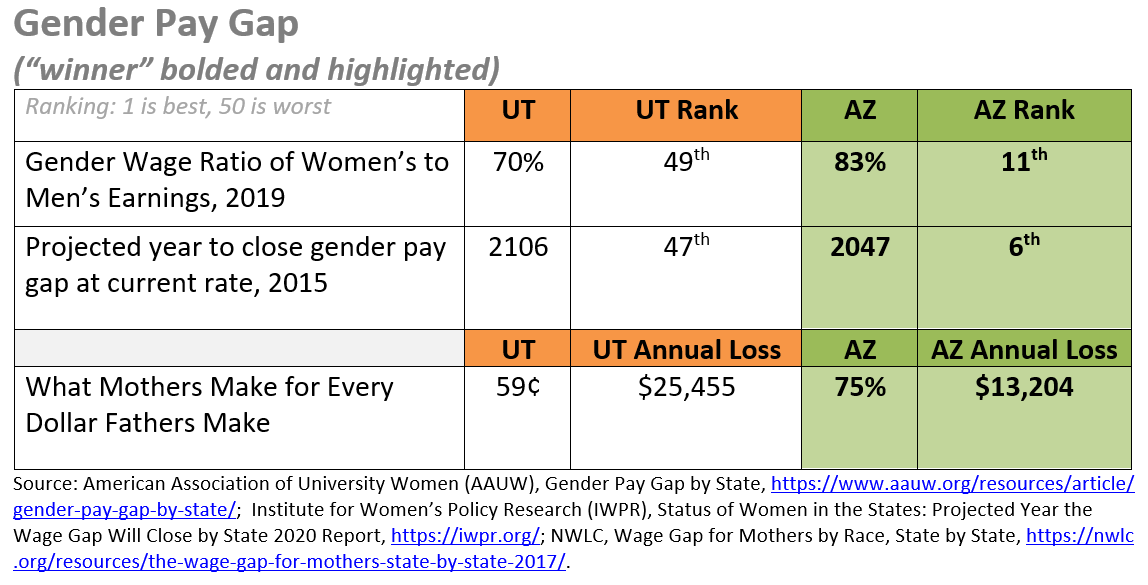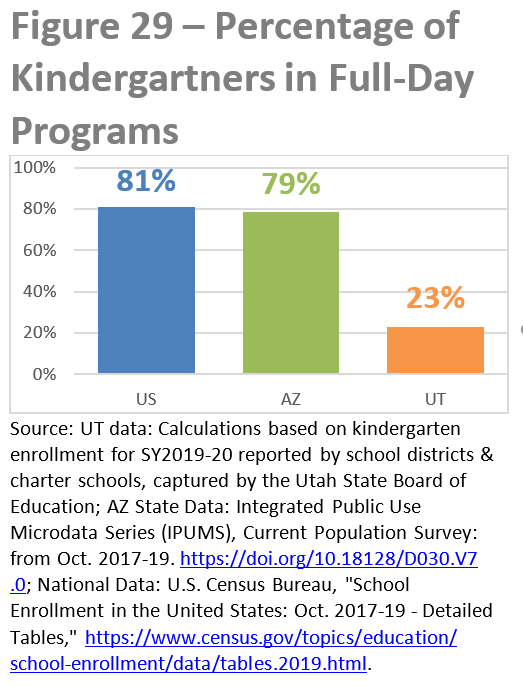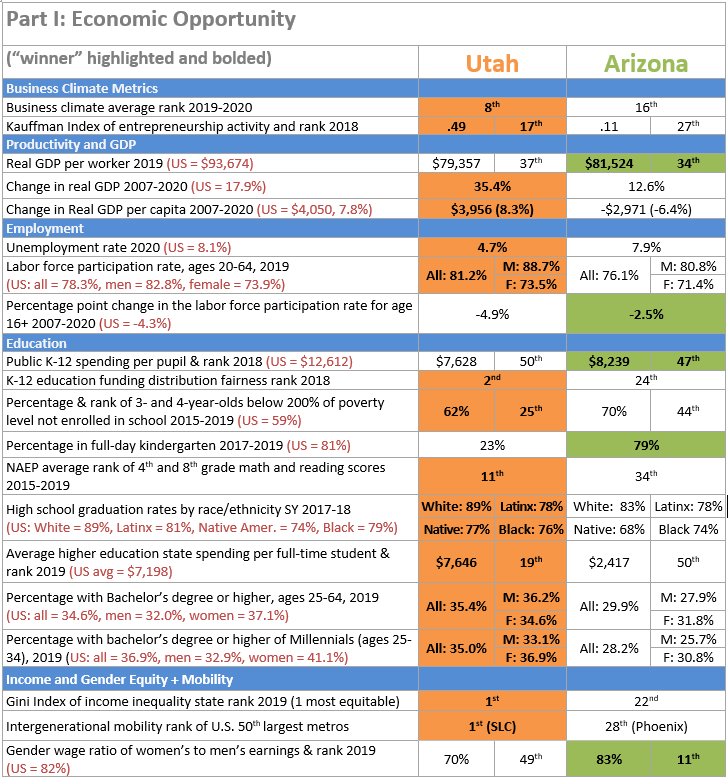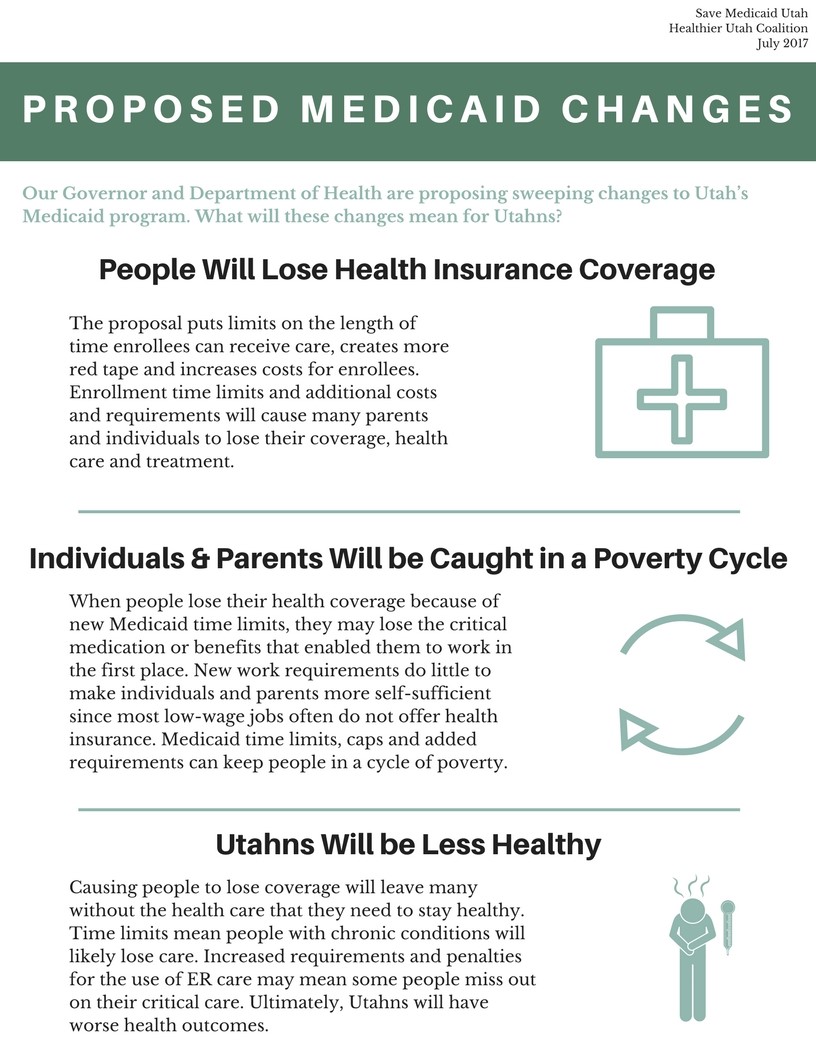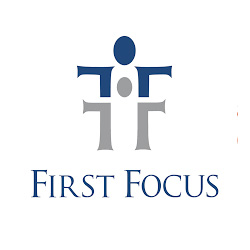Health
Chipped Off: Feeling frustrated that Congress still hasn’t funded CHIP? So are we.
Last week we learned that Congress will likely delay on funding CHIP -- again. We also learned that the Utah CHIP program posted a notice to parents that Utah’s CHIP funding will run out by the end of January and coverage could end. Grim news all around.
But what’s most upsetting is that Congress has put states and families in this position at all. We simply should not be here.
The CHIP program is a bipartisan program. Both the House and Senate have agreed upon a 5-year funding extension for CHIP. There is no excuse for this delay.
As others have noted, the damage to CHIP is already being done. While Congress assures us that CHIP will get funded, states face chaos and confusion. While members of Congress tell us that they prioritize families, millions of parents are worried that their kids’ coverage could come to an end.
Here at Voices for Utah Children, we will continue to call upon our Congressional reps to act quickly on the agreed-to, bipartisan solution for CHIP. We will continue to support state agencies, community partners and families as they navigate the best ways to ensure kids have consistent care.
But we also need to tell Congress that we should not be here in the first place. While Congress votes to cut care and drive up costs for more working families, they have neglected the well-being of our kids.
There is no excuse for their inaction.
For 30 years now, Voices for Utah Children has called on our state, federal and local leaders to put children’s needs first. But the work is not done. The children of 30 years ago now have children of their own. Too many of these children are growing up in poverty, without access to healthcare or quality educational opportunities.
How can you be involved?
Make a tax-deductible donation to Voices for Utah Children—or join our Network with a monthly donation of $20 or more. Network membership includes complimentary admission to Network events with food, socializing, and opportunity to meet child advocacy experts. And don't forget to join our listserv to stay informed!
We look forward to the future of Voices for Utah Children and we hope you will be a part of our next 30 years.
Special thanks to American Express, our "Making a Difference All Year Long" sponsor. 
New Economic Benchmarking Report Finds Utah Ahead of Arizona in Most Key Metrics of Economic Opportunity and Standard of Living
Salt Lake City, May 6, 2021 - Voices for Utah Children released today the fourth in its series of ![]() economic benchmarking reports that evaluate how the Utah economy is experienced by median- and lower-income families by benchmarking Utah against another state. This year's report, authored by Taylor Throne and Matthew Weinstein with support from interns from the University of Utah Department of Economics, compares Utah to its southern neighbor, Arizona. Utah and Arizona have a nearly identical proportion of working age adults (18 to 64 years), increasingly diverse populations, and ready access to outdoor recreational opportunities here in the American Southwest. The findings in this year's report shed light on some of Utah's greatest strengths as well as where we can continue to improve.
economic benchmarking reports that evaluate how the Utah economy is experienced by median- and lower-income families by benchmarking Utah against another state. This year's report, authored by Taylor Throne and Matthew Weinstein with support from interns from the University of Utah Department of Economics, compares Utah to its southern neighbor, Arizona. Utah and Arizona have a nearly identical proportion of working age adults (18 to 64 years), increasingly diverse populations, and ready access to outdoor recreational opportunities here in the American Southwest. The findings in this year's report shed light on some of Utah's greatest strengths as well as where we can continue to improve.
Voices for Utah Children's State Priorities Partnership Director Matthew Weinstein commented, "The main takeaways from this report and the others in the series are that Utah's economic successes put us in a position to make the new upfront investments we need to make now -- in education, public health, poverty prevention, and closing majority-minority gaps -- so that we can achieve our true potential and follow in the footsteps of states like Colorado and Minnesota that have become high-wage states and achieved a higher standard of living, and do it in such a way that all our children can have a better future."
The report release presentation took place online and can be viewed at https://fb.watch/5jZBVxpKOY/ . The presenters included both Taylor Throne and Matthew Weinstein as well as a special guest, David Lujan, Director of the Arizona Center for Economic Progress, to share the Arizona perspective on the report.
Utah's Top Economic Advantages: Hard Work & Strong Families Allow Utah to Enjoy High Household Incomes and Low Poverty
Utah enjoys a higher real median household income than Arizona, ranking #11 nationally, although there are significant gaps between the median wage of different racial and ethnic groups. Utah's higher incomes are due largely to our high labor force participation rates and our preponderance of two-worker (often two-parent) households.
Utah Has Lower Poverty Rates Overall But Still Suffers from Large Racial/Ethnic Gaps
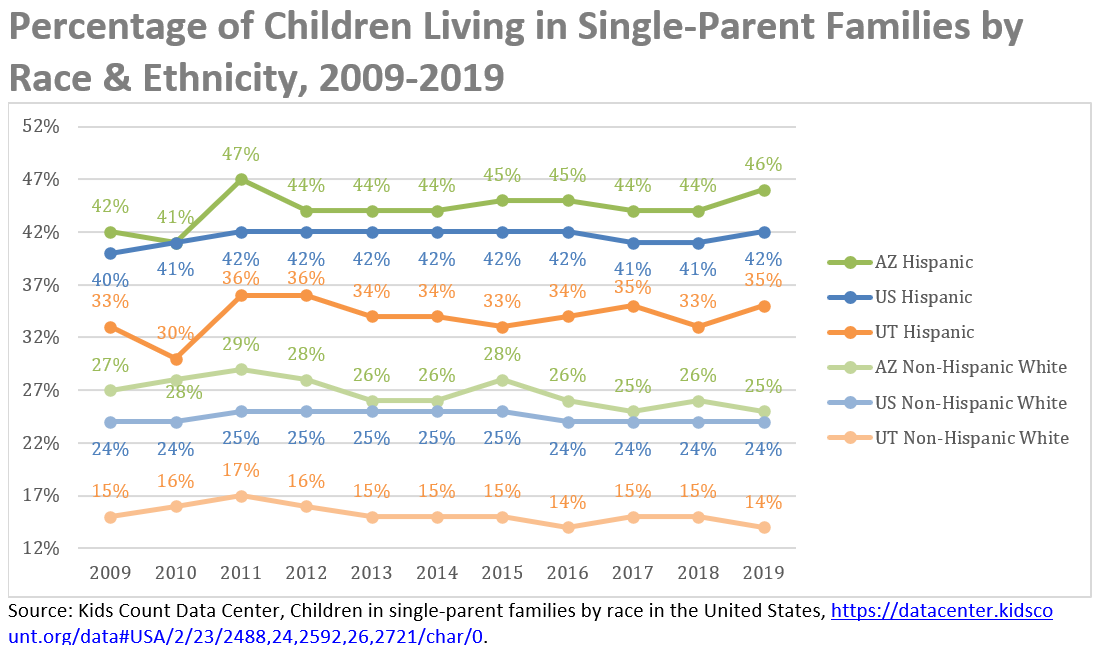
Educational Attainment: Utah Ahead of Arizona But Falling Behind the Nation
The charts below from our latest benchmarking report compare Utah, Arizona and the nation as a whole on educational attainment. Historically Utah was well ahead of the nation, but more recently evidence has mounted that the younger generation of Utahns is not keeping up with the nation's gains at the level of higher education. Moreover, there are stark racial/ethnic gaps in both states and the nation as a whole.
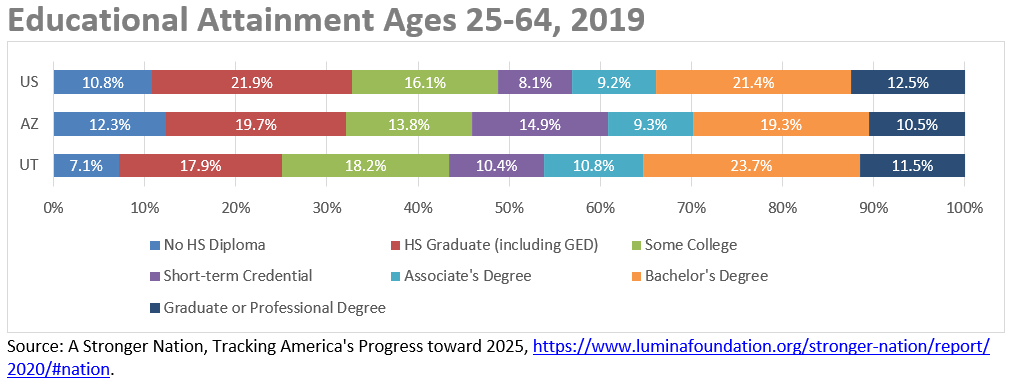
Utah's high school graduation rates are at or below national averages for most racial/ethnic categories, including our two largest groups, Whites and Latinos.
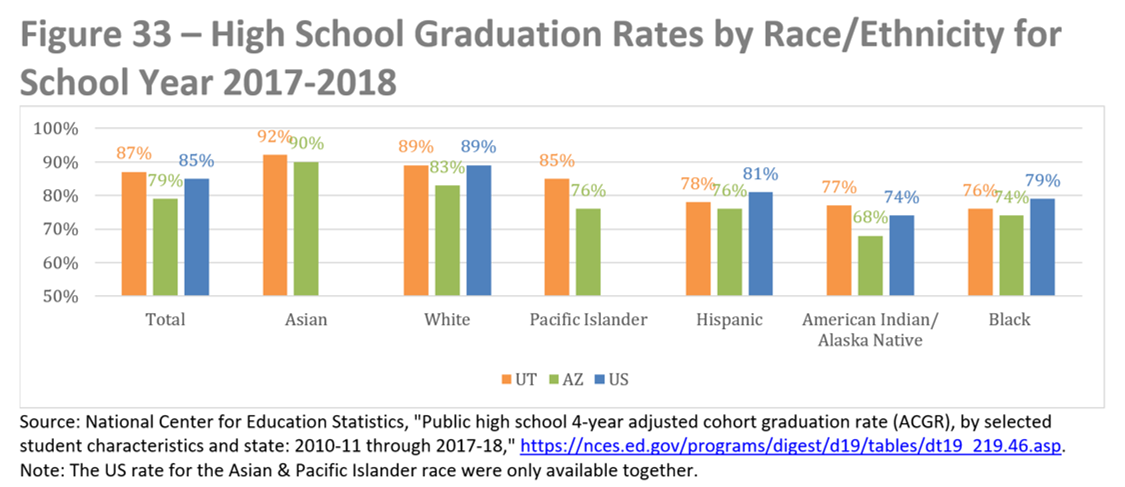
We're also very concerned that Utah's gap between high school graduation rates for Whites and Latinos is larger than nationally.
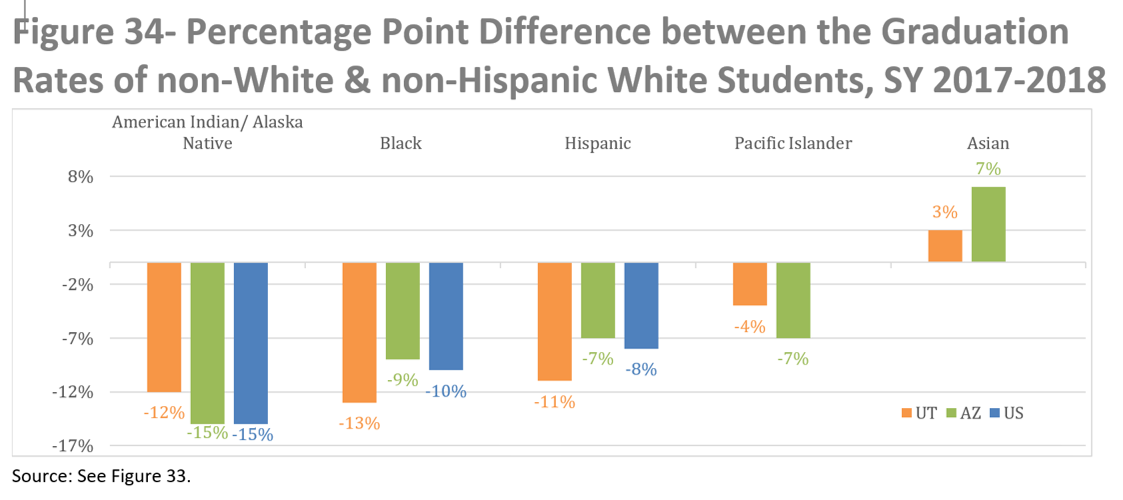
The chart below illustrates the way that Utah's younger generation of adults has fallen behind the higher education attainment of the Millennial generation nationally.
Can Utah Learn Any Lessons from Arizona's Strengths?
Besides Arizona's #11 rank for equal gender wage ratio (while Utah ranks #49), Arizona has more of its children in full-day kindergarten, has a lower 10th percentile hourly wage, and higher productivity. Arizona's higher 10th percentile hourly wage is likely due to their higher minimum wage, although they do have more people earning poverty level wages overall. Meanwhile, Utah has fewer people earning poverty level wages overall, but those at the 10th percentile for hourly wages earn less than their Arizonian counterparts.
Summary of Key Findings
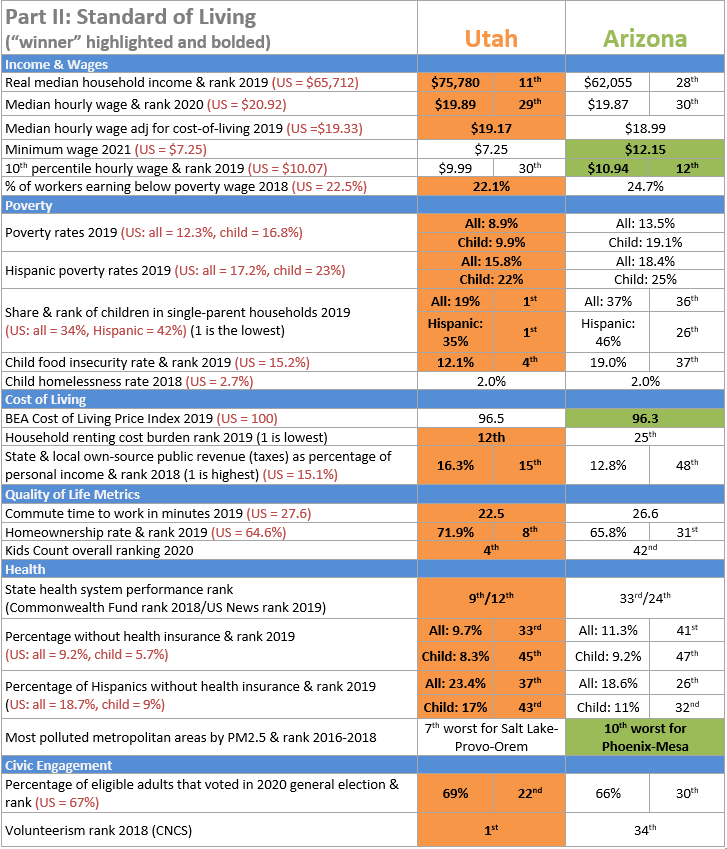
The full 56-page report is ![]() available here as a pdf download.
available here as a pdf download.
Policy Implications
Racial/Ethnic Gaps
Racial and ethnic gaps remain a major challenge in the nation overall, and Utah and Arizona are no exception. Disparities in Utah between minority racial & ethnic groups compared to their White non-Hispanic peers are evident in high school graduation rates, wages, gender pay gaps, poverty rates, and uninsured rates. Addressing these gaps through an upfront investment in education would likely increase educational attainment, wages, and standard of living overall and would therefore contribute to reducing racial and ethnic gaps in the future.
The Link Between Education and Income
The link between education and income is well-established. States with higher education levels generally have higher levels of worker productivity, wages, and incomes. In the current comparison with Arizona, Utah’s higher education levels make for higher levels of wages and income. The lesson for Arizona would be raise education levels to raise the state’s standard of living. The same applies to Utah, where the Legislature has struggled to turn seemingly large dollar increases in education funding every year into increases in real per-pupil investment sufficient to get Utah out of last place in the national ranking.
The latest data from the Census Bureau reports that Utah remains in last place in per-pupil education investment at $7,628, with Arizona only slightly better at $8,239 and 47th in the nation (for FY 2018). While Utah has done well for its meager investment levels, achieving impressive gains in educational performance as measured by NAEP 4th and 8th grade math and reading scores (see Figure 31, page 25), will we be able to continue to advance while remaining in last place?
While Utah “does more with less” in education compared to other states, we have growing challenges to address. Utah has racial/ethnic education gaps which are larger than the national average, for example for Hispanic and American Indian high school graduation rates (see Figure 33, page 26). Utah’s pupil-to-teacher ratio is 22.9, ranking 48th while the national average is 16 (see Figure 22, page 21). Moreover, Utah teacher pay has also fallen over the past 50 years by 1.8% while nationally teacher salaries have increased 6.7% (see figure 24, page 22).
At the college level, Utah historically was always ahead of the national average for attainment of bachelor’s degrees and above. But Census data show Utah’s lead shrinking relative to the nation with each successive generation, to the point now that Utah millennials (ages 25-34) are behind their peers nationally, despite relatively generous state support and low tuition levels.
Can Utah Become a High-Wage State?
For many years, economists have debated whether Utah is a low-wage state, as the Utah Foundation discussed in their 2008 report, “Is Utah Really a Low-Wage State?”[1] That report argued that our seemingly low wages were explained by our younger demographic profile and lower cost of living. While this report does not examine how wages intersect with age demographics, Utah ranks 29th in median hourly wages, compared to 41st in 2004 (see chart below). When adjusted for our low cost of living, Utah’s median hourly wage in 2019 was $19.17, just 16 cents lower than the national level. These data seem to demonstrate that Utah has gone from being a low-wage state a generation ago to middle-wage status today, a considerable accomplishment.

One question Utah leaders may now wish to consider is, is that good enough? Should we declare, “Mission Accomplished”? Or is Utah in a position, like Colorado and Minnesota before us, to become, over time, a high-wage state and set our sights on taking the necessary steps today to achieve that goal over the years and decades to come?
Similarly, how do we include those earning the lowest wages in the gains Utah has made and will potentially make in the future? Utah is not even a half percentage point lower than the national share of workers earning poverty level wages (see Figure 55, page 38) and lags behind the nation’s 10th percentile wage, ranking 30th (see Figure 54, page 37). Even as the state with the lowest income inequality ranking in the nation (see Figure 45, page 31), Utah suffers from a tremendous gap between low-income workers and the rest of the income scale.
The main lesson that emerges from the Working Families Benchmarking Project reports comparing Utah to Colorado, Minnesota, Idaho and now Arizona is the following: Higher levels of educational attainment translate into higher hourly wages, higher family incomes, and an overall higher standard of living. The challenge for policymakers is to determine the right combination of public investments in education, infrastructure, public health, and other critical needs that will enable Utah to continue our progress and achieve not just steady growth in the quantity of jobs, but also a rising standard of living that includes moderate- and lower-income working families from all of Utah’s increasingly diverse communities.
MEDIA COVERAGE OF THE BENCHMARKING PROJECT:
Facebook Live Event discussing the report overall joined by David Lujan, Director of Arizona Center for Economic Progress at Children's Action Alliance: https://fb.watch/68E_JarLMT/
Facebook Live Event focusing on women in higher education, the gender pay gap, and income equality with panelists: Dr. Susan Madsen, Founder and Director of the Utah Women & Leadership Project; Marshall Steinbaum Ph.D., Associate Professor at the University of Utah's department of Economics; and Gabriella Archuleta JPP MPP, Policy Analyst with YWCA Utah. https://fb.watch/68FoEVvGwY/
Facebook Live Event focusing on Utah's economic success and economic development strategy with panelists: Howard Stephenson MPA, former Utah Senator; Phil Dean MS MPA, public finance senior research fellow at the Gardner Institute; and Thomas Maloney PhD., Professor, Department of Economics, University of Utah. https://fb.watch/6r25O5rdDd/
Facebook Live Event focusing on education in Utah from pre-school to higher education, focusing on educational attainment & closing racial and ethnic gaps with panelists: Carrie Mayne, Chief Economist for Utah System of Higher Education; Andrea Rorrer PhD., Director of the University of Utah's Education Policy Center; and Anna Thomas MPA, Senior Policy Analyst at Voices for Utah Children. https://fb.watch/7iKYaR9Zy4/
Stories of Utah Medicaid & CHIP
CHIP & Medicaid Make a Difference for our kids & families and community.
The Truth about Utah Medicaid & CHIP
In Utah there is often a negative and inaccurate stigma around the word Medicaid. Most people do not know that Medicaid & CHIP are critical to Utah’s entire health care system. Over 300,000 Utahns are covered by these programs and 70% of the recipients are children. 215,000 Utah kids rely on Medicaid or CHIP for their health care. Over 40,000 parents & pregnant women rely on Medicaid to give their families a healthy start. Medicaid is the cornerstone of children’s health care, providing a crucial lifeline for low-income families and kids with special heath care needs.
Celebrate the People & Stories of Medicaid & CHIP
It’s time to lift up the stories and people of Medicaid & CHIP, so we can protect and strengthen these vital programs. We are joining amazing campaigns around the country to celebrate the critical role Medicaid & CHIP play in our community. By sharing stories and images on social media, with lawmakers & decision-makers, the media and the public, we can transform misconceptions and perceptions, and make Medicaid & CHIP even stronger.
Get Involved!
Break down the stigma and celebrate Medicaid & CHIP! Your story is powerful
- Share your story on the Healthier Utah Coalition facebook page or send us a message.
- Take this quick survey: https://www.surveymonkey.com/r/VJP7Y7G
- Or just send an email to
- Finally, don’t forget to email, call and tag your local legislator and Congressional reps. Tell them how Medicaid & CHIP makes a difference in your life and for your community. We need more voices to keep these programs safe. All kids & families need to access affordable, quality health care.
“Both programs have helped us to stay away from debt during our kids’ illnesses.”
“Our son’s care is still challenging; he still has all of the same health conditions and risks as he did two years ago. However, it all seems to be so much more manageable thanks to Medicaid and the waiver. “
“Medicaid allowed our son to get the necessary care… Without Medicaid we would have been more of a burden to the government programs and likely would have claimed medical bankruptcy”
I am able to…be alert around my kids and we can live our lives by ourselves and make memories together.
“…She endured a number of life-saving medical procedures… Medicaid made [them] possible.”
“The Medicaid Medically Complex Children’s Waiver (MCCW) literally was a lifesaver”
“Thanks to this program [my children] have maintained good medical attention and even surgeries…
“Without Medicaid, our son’s disease would be breaking our family. Instead, we can pull together and help him and each other, because Medicaid helps us.”
“If we did not have Medicaid, my son would be dead. That sounds a bit dramatic, but it is the case.”
“I wouldn’t have been able to afford the hospital stay or his [type 1] diabetic supplies without CHIP.”
“We couldn’t have afforded [my daughter’s surgery] otherwise.”
"The rainbow through all of these dark clouds was... Medicaid."
"[Medicaid]'s crucial for our patients."
For 30 years now, Voices for Utah Children has called on our state, federal and local leaders to put children’s needs first. But the work is not done. The children of 30 years ago now have children of their own. Too many of these children are growing up in poverty, without access to healthcare or quality educational opportunities.
How can you be involved?
Make a tax-deductible donation to Voices for Utah Children—or join our Network with a monthly donation of $20 or more. Network membership includes complimentary admission to Network events with food, socializing, and opportunity to meet child advocacy experts. And don't forget to join our listserv to stay informed!
 We look forward to the future of Voices for Utah Children and we hope you will be a part of our next 30 years.
We look forward to the future of Voices for Utah Children and we hope you will be a part of our next 30 years.
Special thanks to American Express, our "Making a Difference All Year Long" sponsor.
What do Utahns Think About the Proposed Changes to Medicaid and PCN? Results of a Statewide Survey
Recently the Healthier Utah Coalition ‘Save Medicaid Campaign’ put together a survey to get public feedback on the Utah Department of Health’s proposed changes to its Medicaid program. The proposed amendments to the Medicaid and Primary Care Network (PCN) included controversial program changes such as lifetime caps on coverage, work requirements, and $25 copays for ‘inappropriate’ use of the ER. The proposed amendments would also eliminate presumptive eligibility in Medicaid and reverse an earlier Department of Health decision to restore comprehensive benefits to 19 and 20-year-old youth.

The Utah Department of Health held two public meetings at its Salt Lake City office in the summer. The Coalition’s survey was an attempt to reach a wider audience across the state, and walk through each amendment for those less familiar with the proposed waiver. We modeled the survey after a similar one developed by fantastic advocates in Kentucky. Survey responses were also sent to the U.S. Department of Health and Human Services, during their federal waiver comment period (if the respondent granted permission).
So, what did we learn?
Over 350 people took the survey. Survey respondents came from across Utah and all walks of life:
- Over half of respondents (58%) reported being either on Medicaid or PCN, or have a family member on Medicaid or PCN.
- The majority of respondents were between the ages of 30- 69.
- Over half of respondents (54%) were working less than 31 hours/ week. They reported working part-time, as a caregiver, or reported being retired, disabled or a student.
- 50% of respondents came from Salt Lake County, followed by Utah (11%), Davis (10%), Weber (8%), Washington (6%), Cache (3%), Iron (2%), and Box Elder (2%). Only six counties did not have any survey respondents: Daggett, Garfield, Juab, Kane, Morgan, and San Juan.
How did respondents feel about the proposed changes?
Overall, the proposed Medicaid changes were very unpopular. The most unpopular changes were imposing lifetime limits on PCN or Medicaid coverage. Interestingly, the option to impose ER penalties had the most support, although the majority of respondents still opposed it.
- 91% were against time limits on coverage
- 75% were opposed to work requirements
- 53% were opposed to ER penalties
- 87% opposed to eliminating presumptive eligibility
- 90% opposed eliminating comprehensive benefits for 19 and 20-year-old’s
A few of the comments from respondents:
“As a care taker for my elderly mother, I have been in this position for nearly a decade and my part time income is always below FPL, yet I cannot get inclusion into PCN because I have no children…. No one seems to be addressing people in my situation at all.”
“I am concerned that my adult daughter with significant health care issues may lose the critical coverage that she needs to sustain quality of life and even life itself.”
“Many of the families I work with cannot afford $25 dollars [for an ER copay]. Paying this much as a co-pay would mean they do not eat.”
“[Without Medicaid] I would have died from cancer by now. I'm 41. I have so many prescriptions for my illnesses, I would be bankrupt and homeless, relying on hand outs. Now I have a part time job, housing I can pay rent and utilities bc my medical is covered. I know hundreds of people in my community who are receiving mental health care like myself. It's the best around. I am grateful daily as I am healthy only bc I have adequate health services. I can't imagine if I didn't. I would suffer severely. Many Utahns are in the same situation.”
For 30 years now, Voices for Utah Children has called on our state, federal and local leaders to put children’s needs first. But the work is not done. The children of 30 years ago now have children of their own. Too many of these children are growing up in poverty, without access to healthcare or quality educational opportunities.
How can you be involved?
Make a tax-deductible donation to Voices for Utah Children—or join our Network with a monthly donation of $20 or more. Network membership includes complimentary admission to Network events with food, socializing, and opportunity to meet child advocacy experts. And don't forget to join our listserv to stay informed!
We look forward to the future of Voices for Utah Children and we hope you will be a part of our next 30 years.
Special thanks to American Express, our "Making a Difference All Year Long" sponsor. 
Congress Missed the Deadline on CHIP: What Does That Mean for Utah Kids? (And what we can do about it)
September 30th was the deadline for Congress to renew the Children’s Health Insurance Program, or CHIP. So what happens now to the almost 20,000 Utah children who currently rely on CHIP for their health insurance?
First (a little) good news: Utah has enough money in its CHIP program to make it through the end of the year. Plus CHIP is a very popular program. Utah’s own Senator Hatch has come out with strong statements in support of CHIP renewal, and is spearheading a bipartisan proposal to keep the program funded.
But here’s the bad news: If Congress doesn’t act soon, Utah’s CHIP program will have to start sending notices to families by early November. So thousands of families could receive notices that their children no longer have health insurance coverage.
The other troubling news: While there are strong bipartisan solutions to extend CHIP funding for 5 years, the bill could get muddied up in GOP attempts to cut back funding to other vulnerable populations. It could become a messy, bargaining ‘chip’…
What can you do? Tell Congress to stop playing games with children’s health. They must act now on a clean, 5-year extension of CHIP funding. Otherwise almost 20,000 Utah kids could lose health coverage.
We cannot let that happen.
Call Utah Senators and House members today. Tell them to protect CHIP now -- without any interruptions to kids’ coverage.
Sen. Orrin Hatch (202) 224-5251 (DC) // (801) 524-4380 (SLC) // (801) 375-7881 (Provo) // (435) 634-1795 (St. George) // (801) 625-5672 (Ogden) // (435) 586-8435 (Cedar City)
Sen. Mike Lee 202-224-5444 (DC) // 801-524-5933 (SLC) // 435-628-5514 (St. George) // 801-392-9633 (Ogden)
Rep. Rob Bishop (Congressional District 1): 202-225-0453 (DC) // 801-625-0107 (Ogden)
Rep. Chris Stewart (Congressional District 2): 202-225-9730 (DC) // 801-364-5550 (SLC) // 435-627-1500 (St. George)
Rep. Mia Love (Congressional District 4): (202) 225-3011 (DC) // 801-996-8729 (West Jordan)
Not sure who your U.S. Representative is? https://www.utah.gov/government/contactgov.html
For 30 years now, Voices for Utah Children has called on our state, federal and local leaders to put children’s needs first. But the work is not done. The children of 30 years ago now have children of their own. Too many of these children are growing up in poverty, without access to healthcare or quality educational opportunities.
How can you be involved?
Make a tax-deductible donation to Voices for Utah Children—or join our Network with a monthly donation of $20 or more. Network membership includes complimentary admission to Network events with food, socializing, and opportunity to meet child advocacy experts. And don't forget to join our listserv to stay informed!
We look forward to the future of Voices for Utah Children and we hope you will be a part of our next 30 years.
Special thanks to American Express, our "Making a Difference All Year Long" sponsor. 
Tell Congress to Protect Healthcare for Kids: Graham-Cassidy ACA Repeal Bill Threatens the Children’s Health Insurance Program
The Senate is moving hastily forward with a last-ditch attempt to repeal the ACA, known as Graham-Cassidy. Just like previous attempts, this bill will gut Medicaid, undermine consumer protections and raise the cost of health insurance for children, seniors, people with disabilities and those who can least afford it.
What’s more, Graham-Cassidy is also derailing current efforts to renew funding for the Children’s Health Insurance Program (CHIP). CHIP funding must be renewed by September 30th or kids’ coverage will be at risk. Last week, our own Senator Hatch recently introduced a bipartisan solution to extend CHIP funding for five years. But Graham-Cassidy puts this bipartisan solution in jeopardy.
With just a few legislative days left in September, Congress has a choice to make: support coverage for kids and families by protecting Medicaid and renewing funding for CHIP, or endanger our nation’s safety net and care for kids, seniors and people with disabilities. Utah families can’t afford the latter.
Tell Congress to reject Graham-Cassidy, and instead stand by their commitment to families: It’s time to protect Medicaid and move forward on a bipartisan solution for CHIP.
Please contact Utah Senators – every call matters.
Thank you for your continued action.
Contact Senators today!
Senator Orrin Hatch, Washington Office - 202.224.5251
• SLC 801.524.4380
• St. George 435.634.1795
• Ogden 801.625.5672
• Cedar City 435.586.8435
• Provo 801.375.7881
Hatch's e-mail
Senator Mike Lee, Washington Office - 202.224.5444
• SLC 801.524.5933
• St. George 435.628.5514
Lee's e-mail
For 30 years now, Voices for Utah Children has called on our state, federal and local leaders to put children’s needs first. But the work is not done. The children of 30 years ago now have children of their own. Too many of these children are growing up in poverty, without access to healthcare or quality educational opportunities.
How can you be involved?
Make a tax-deductible donation to Voices for Utah Children—or join our Network with a monthly donation of $20 or more. Network membership includes complimentary admission to Network events with food, socializing, and opportunity to meet child advocacy experts. And don't forget to join our listserv to stay informed!
We look forward to the future of Voices for Utah Children and we hope you will be a part of our next 30 years.
Special thanks to American Express, our "Making a Difference All Year Long" sponsor. 
Support Home Visiting Programs!
Home visiting programs play a vital role for kids and families. They provide support to new parents and infants, especially to low-income mothers throughout our state. Now national funding for home visiting programs are on the line. The funding source, called MIECHV (which stands for Maternal, Infant, and Early Childhood Home Visiting), is an important program that supports the implementation of evidence-based home visiting programs in Utah and across the U.S. The funding expires on September 30th. Rigorous research shows home visiting:
• Reduces child abuse and neglect
• Improves the health and well-being of young children
• Increases parental self-sufficiency as parents stay in school and/or obtain gainful, stable employment
• Improves school readiness and success in young children
The MIECHV program, as it is structured now, allows states and local communities to make the decisions that are right for them about how to provide home visiting services. At the same time, it encourages innovation and continuous improvement.
Utah relies on MIECHV to support home visiting programs and services that help families succeed.
We are now at a critical moment in the drive to reauthorize MIECHV. To learn more and show your support for these important programs check out the National Home Visiting Coalition website, where you can get regular updates and action alerts to protect MIECHV funding: http://homevisitingcoalition.com/
Home visiting is a smart, proven investment in our most important asset – our families. Thank you to the Home Visiting Coalition for this background on MIECHV.
Finally, for more information about our statewide programs, and the important role evidence-based home visiting programs play in Utah, visit the Utah State Office of Home Visiting.
Extend CHIP Now! Resources & Info
CHIP, or the Children’s Health Insurance Program, needed to be renewed by the end of September!
Congress missed the deadline to move forward with a bipartisan solution on CHIP. It's time for swift action, in order to protect children's coverage! A 5-year renewal of the CHIP program, which maintains current funding match levels and program requirements until FY2022, will ensure that families are protected in an uncertain healthcare environment. Learn more about CHIP and how it works.
- CHIP provides quality health coverage to nearly 20,000 Utah kids every year, and almost 9 million children across the U.S.
- For over 20 years, CHIP has provided cost-effective care to children.
- CHIP keeps kids healthy and gives parents peace-of-mind to know that their children can get the care they need.
Share your story! How has CHIP made a difference in your life? https://www.surveymonkey.com/r/VJP7Y7G
Contact your Senators and Representative and urge them to extend CHIP now and maintain their commitment to Utah kids and families. Kids and families cannot afford to wait.
Check out Governor Herbert's video (English and Spanish) and Lt. Governor Cox’s video in support of the CHIP program and share them with your networks!
If you want to sign up for CHIP, call 211 or visit TakeCareUtah.org.
Check out these additional resources and infographics on CHIP:
https://ccf.georgetown.edu/wp-content/uploads/2017/09/fed_advocacy_chip_utah.pdf
http://familiesusa.org/initiatives/childrens-health-insurance-program
https://www.communitycatalyst.org/resources/2017-alerts/8-4/CHIP-toolkit-2017-FINAL.pdf
For 30 years now, Voices for Utah Children has called on our state, federal and local leaders to put children’s needs first. But the work is not done. The children of 30 years ago now have children of their own. Too many of these children are growing up in poverty, without access to healthcare or quality educational opportunities.
How can you be involved?
Make a tax-deductible donation to Voices for Utah Children—or join our Network with a monthly donation of $20 or more. Network membership includes complimentary admission to Network events with food, socializing, and opportunity to meet child advocacy experts. And don't forget to join our listserv to stay informed!
We look forward to the future of Voices for Utah Children and we hope you will be a part of our next 30 years.
Special thanks to American Express, our "Making a Difference All Year Long" sponsor. 
The time is now! Extend CHIP!
CHIP- or the Children’s Health Insurance Program- provides affordable health insurance to about 20,000 children in Utah and nearly 9 million kids across the U.S. For over 20 years, CHIP has helped low-income children get the health coverage they need, and their families to have peace-of-mind knowing that their kids will have quality, affordable care. CHIP has traditionally received broad, bipartisan support. Utah’s own Senator Hatch is one of the founding fathers of the program. Together CHIP and Medicaid have helped Utah achieve historic gains in children’s health insurance coverage.
So, what’s the catch? CHIP funding needs to be renewed – and the clock is running out. Congress needs to act before September 30th. 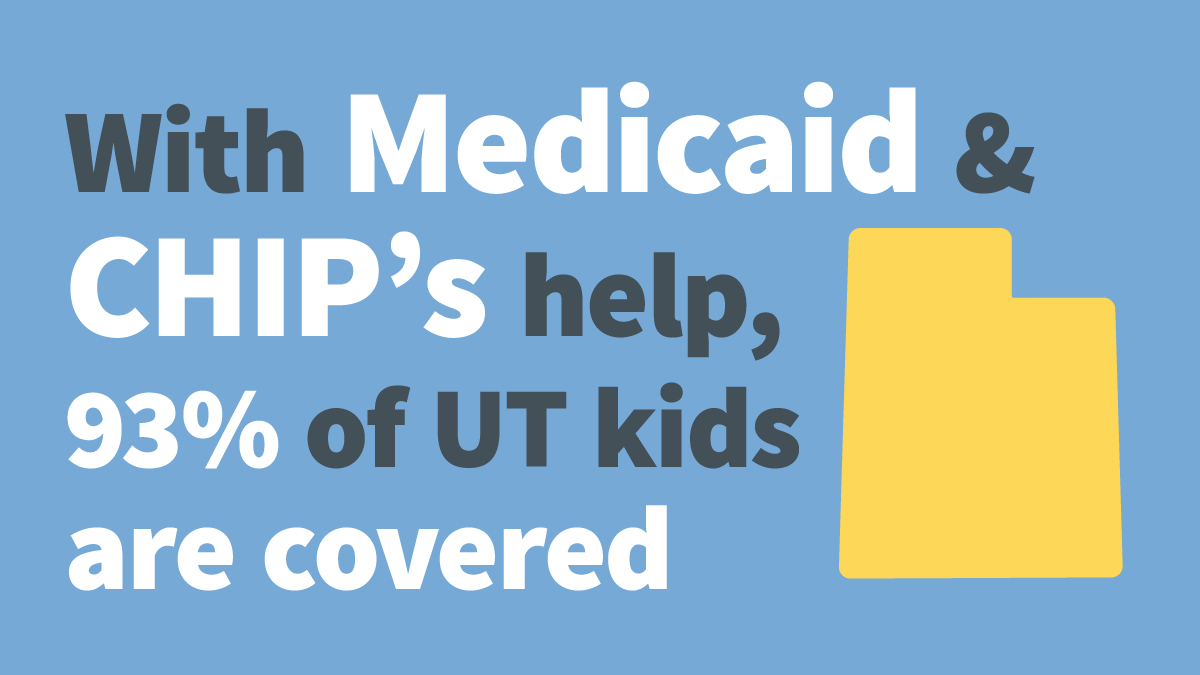
When Congress returns from their August recess, extending CHIP funding must be at the top of their list. A 5-year renewal of CHIP, which maintains current funding match levels and program requirements until FY2022, will ensure that families are protected in an uncertain healthcare environment.
A CHIP renewal by the end of September is critical for Utah’s CHIP program to operate effectively and- most importantly- for kids and families to get the quality care they need to stay healthy and thrive.
What can you do? Tells us how CHIP, or Medicaid, has made a difference in your life. Share your story...
The time is now for Congress to continue their 20-year-old commitment to kids and extend CHIP funding!
Utah’s Double Medicaid Threat
At Voices for Utah Children, we are closely following what happens to Medicaid. The majority of Utah’s Medicaid enrollees are kids. CHIP- the Children’s Health Insurance Program- could not exist without Medicaid. Medicaid is the cornerstone for children’s health. All kids need health insurance to be healthy and thrive,
But now Utah’s Medicaid program is under not just one but two threats. There are changes to Medicaid being proposed in Congress at the federal-level, and changes proposed by Governor Herbert and the Department of Health at the state-level.
Trying to understand these different changes and what they mean for Utahns? Here is a quick overview of the federal and state threats:
#1 Federal Cuts to Medicaid and Dismantling the Medicaid Program as We Know It
There are significant threats to Medicaid in the Republicans’ ever-changing ACA repeal efforts. The G.O.P. health care bill proposes massive cuts to Medicaid and a radical restructuring of the Medicaid program. Specifically, Congress has proposed two different state options; both would lead to major changes and cuts to the Medicaid program. 1) States can opt to cap funding through a per enrollee or per capita amount. This cap option would allow for the program to grow if new people enroll, but would limit the federal dollars available for states to meet demand and program growth. 2) Or states can opt for the block grant option, which is essentially a ‘lump sum’ amount. Under this option, even fewer federal dollars flow into the state’s Medicaid program, but the state has greater ‘flexibility’ to cut people or benefits from the program. Under the current Senate bill, certain children with special health care needs are exempt from the per capita cap option and all children are exempt from the block grant. Yet as many others have pointed out, these are not sufficient ‘fixes’ to the problem, since we know that children need healthy parents to thrive. Moreover, the bill still limits available state resources overall, which means vulnerable populations including children, seniors and people with disabilities, will be forced to compete for limited state dollars.
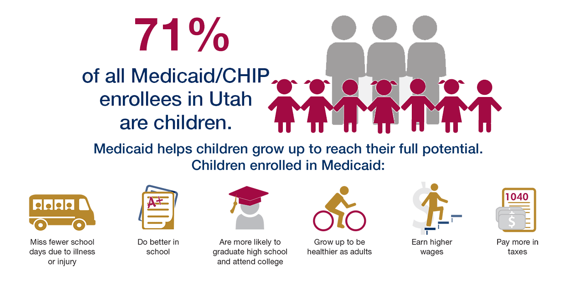
But unfortunately, those are not the only threats to Medicaid...
#2 State Changes to the Medicaid Program through a Waiver Request to the Federal Government: People Will Lose their Health Coverage
While Congress is considering Medicaid cuts, Utah’s state Department of Health is also proposing some unprecedented administrative changes to the Medicaid program. The Department wants to move forward with these changes regardless of what happens at the federal level.
The Utah Department of Health is planning to submit a request, or waiver, to the federal government to make the changes. States are not required to change their program- most aren’t. But a few states like Utah are seeking to increase restrictions and requirements in their Medicaid program. Why are states doing this now? Previous administrations did not allow for these changes. But the new Trump administration has indicated that they are open to increased Medicaid restrictions.
Utah is proposing several changes that will cause enrollees to lose care and more people to lose coverage. Learn more about the full scope of the changes and how to take action. Some changes include:
1) Health insurance time limits: The Department is proposing to limit the length of time a parent or individual can receive coverage through the Primary Care Network (PCN), or the time an adult without children can receive Medicaid. Even if the parent is working and on PCN, they will lose coverage after 5 years. This will be particularly harmful for those with chronic conditions or mental health needs who require some medication, but do not qualify for disability Medicaid.
2) Work requirements for Primary Care Network (PCN) enrollees: Work requirements mean more red tape and administrative requirements for enrollees. Added administrative requirements increase the likelihood that someone will miss a deadline or forget paperwork, and then lose their coverage entirely. What’s more, we already know that work requirements are not an effective way to improve coverage.
3) Penalties for non-emergency use of the ER: If an individual or parent goes to the ER for a non-emergency purpose, he or she will be charged a $25 penalty. The goal of this increased penalty is to decrease state costs. Unfortunately, many advocates believe this will simply deter vulnerable populations from accessing the care they need. What’s more, the Department is increasing penalties without any additional support for enrollees to receive care management or patient navigation support.
The Department of Health is currently accepting comments and public feedback about these proposed changes. Share your comments online by July 20th.
Or attend an upcoming public hearing on July 10th.


